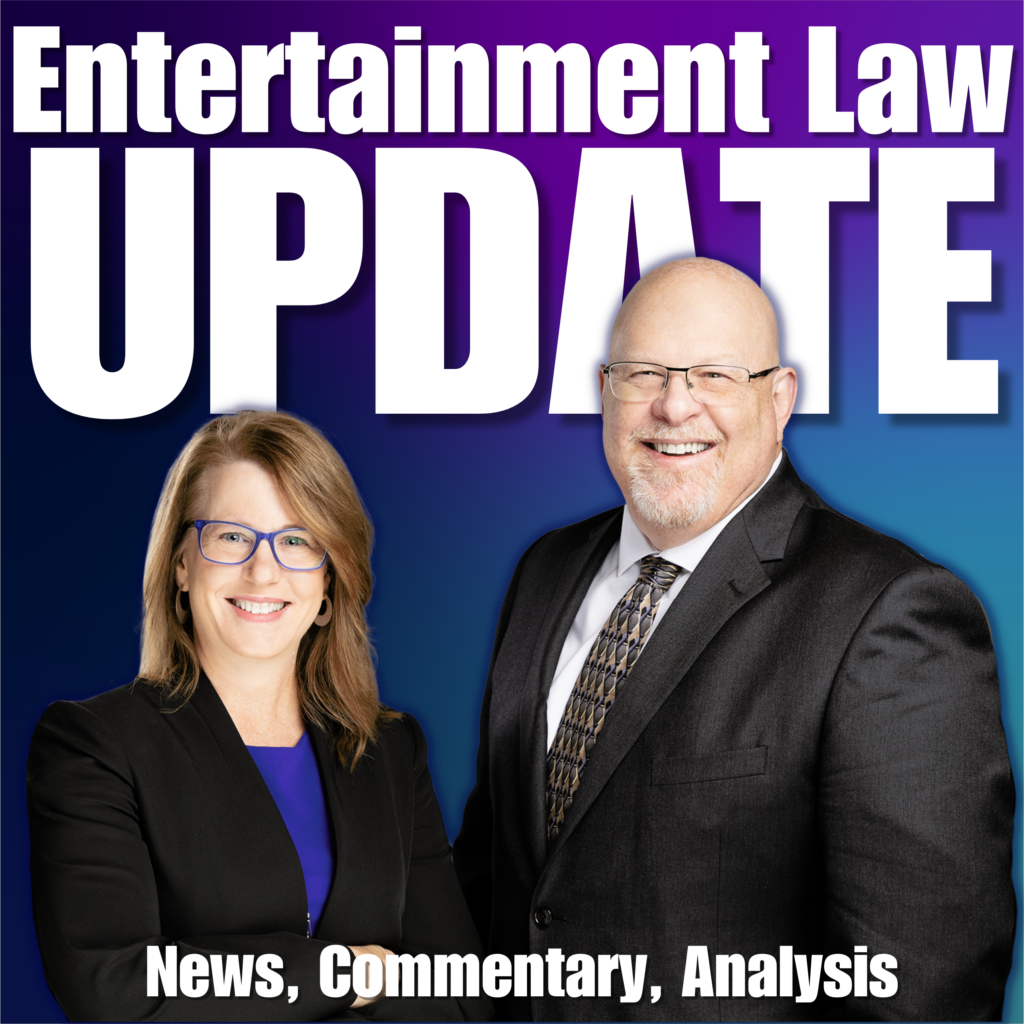Latest Video Explainer from Legit Podcast Pro
Follow Legit Podcast Pro wherever you get your podcasts!
Follow Legit Podcast Pro wherever you get your podcasts!
Join Gordon Firemark and Tamara Bennett in episode 166 of the Entertainment Law Update podcast as they provide detailed analysis and commentary on various legal and business news stories. Paramount's triumph in the Top Gun copyright case and Tennessee's enactment of the Elvis Act to combat AI deepfakes are highlighted, alongside new legislation aiming to restrict the use of copyrighted music for AI training. Additionally, agreements between Sag-AFTRA and record companies on AI use in recordings and the Czech court's stance on human authorship in AI-generated content are discussed and other legal cases are also covered. Dive deeper into these stories and more in Episode 167, available for streaming and viewing, or subscribe and download on your favorite podcast platform. Listen and view the show notes here, or subscribe and download in your favorite podcast listening app.
Show notes are located at
entertainmentlawupdate.com/167
The Federal Trade Commission (FTC) recently banned most non-compete agreements, impacting how businesses operate across the board. This is particularly interesting for media, entertainment, and online industries known for their talent mobility and creative collaborations.
What's Changing?
Previously, non-compete agreements restricted employees from working for competitors for a certain period after leaving. The FTC's rule prohibits employers from enforcing these agreements for almost all workers, with a narrow exception for senior executives. This means employees can more freely switch jobs or even launch their own ventures without legal repercussions.
Potential Impacts
Uncertainties Remain
While the ban is a significant change, some uncertainties linger. How will companies protect trade secrets and confidential information? What will the impact be on long-term training programs offered by employers? These questions might lead to further legal clarifications and adjustments in the coming months.
Overall, the FTC's ban on non-compete agreements is likely to reshape the talent landscape in media, entertainment, and online businesses. Increased talent mobility, evolving employer-employee dynamics, and a potential boost for innovation are some of the anticipated outcomes. As the dust settles, we'll see how these industries adapt and thrive in this new environment.
In the glamorous world of entertainment, the focus is often on creativity, star power, and the end product. However, the backbone of any successful entertainment project isn’t found in the spotlight—it’s in the mundane yet crucial early stage of establishing clear agreements. These agreements are not merely paperwork; they are the foundational elements that ensure… Continue Reading

Music can define a film, evoking emotions and enhancing narratives. However, the legal complexities surrounding music rights are a landscape fraught with pitfalls that filmmakers often underestimate. Here’s a deep dive into the hard lessons about using music in films, complete with real-life examples and case law. 1. Music Licensing Can Be Costly Securing the… Continue Reading
What a pleasure it was to join Host Leah Rae Getts to talk about the legal side of online business, media, courses, etc. Check out this episode, and let me know in comments or via email if you have questions. Prefer audio? Apple: https://podcasts.apple.com/us/podcast/digital-trailblazer-podcast/id1717325062 Spotify: https://open.spotify.com/show/2krxAi7r6e2teFmNFoKDG5?si=4ccb1f7022f24eb4 Continue Reading

In the ever-evolving world of podcasting, where the lines between content creation and legal obligations often blur, understanding the intricacies of disclaimers and disclosures becomes paramount. Whether you’re a seasoned podcaster or just starting out, the content you produce carries with it certain responsibilities—not just to your audience, but also in the eyes of the… Continue Reading
Join Gordon Firemark and Tamara Bennett in episode 165 of the Entertainment Law Update podcast as they provide detailed analysis and commentary on various legal and business news stories. The episode covers a range of cases, from Alec Baldwin’s indictment in the Rust movie shooting to copyright disputes over AI-generated content. Highlights include discussions on… Continue Reading
Scams are nothing new for trademark applicants and registrants. Because the application is a public-record, it’s quite easy for anyone to identify those who’ve recently filed or received office actions and target them. There are two new(ish) scams that have started showing up that are worth warning you about so you don’t wind up a… Continue Reading
#BusinessEntity #Entrepreneurship #StartUpGuide #BusinessStructure #LLCvsCorporation #SCorpBenefits #LegalGuide #BusinessGrowth #TaxTipsForBusiness #InformedDecisionMaking Contact us by visiting https://firemark.com NOTE: AI Tools were used to outline, script and assemble this video. Continue Reading
Navigating the Corporate Transparency Act for Small Businesses and Legal Entities The Corporate Transparency Act (CTA) is a pivotal piece of legislation that impacts many small businesses with LLC or corporation structures, among others. Enacted as part of the National Defense Authorization Act for fiscal year 2021, the CTA aims to enhance transparency and combat… Continue Reading
View our Privacy Policy and Terms of Use